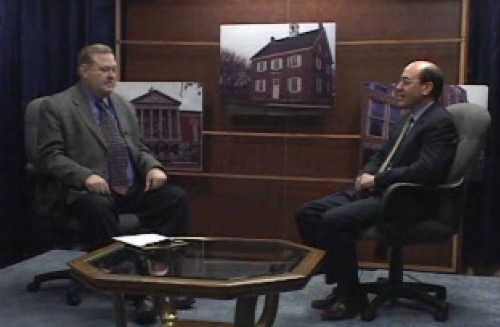In another article, I look at the benefits of a power of attorney. After all, it’s an easy way to give someone else (your “Agent”) the power to act on your behalf in the event you become disabled. In the second article, however, I was careful to warn of the problems that arise if you give power of attorney to the wrong person. It seems that I wasn’t the only one concerned about these problems. Pennsylvania Governor Corbett was concerned as well. To deal with such issues, Pennsylvania recently amended its Power of Attorney Law. These changes came about when Governor Corbett signed Act 95 on July 2, 2014. Some of the changes became effective immediately and other changes became effective on January 1, 2015.
In an effort to make sure the power of attorney document is genuine, any power of attorney signed on or after January 1, 2015, must be notarized and it must be witnessed by two other persons over the age of 18 years, neither of whom is the agent. In addition, a revised warning notice must be signed by the principal. Finally, before acting, the agent must signed a revised acknowledgment agreeing to abide by certain mandatory duties, including a requirement to act in accordance with the principal’s reasonable expectations and only in within the scope of authority granted in the power of attorney. All of these changes apply to powers signed on or after January 1, 2015. These changes do not apply to powers of attorney that provide exclusively for health care decision making.
These 2015 changes with respect to the notice to be signed by the principal and the acknowledgment to be signed by the agent are the first changes since these concepts were introduced into the law back in 2000. The notice and acknowledgment were first required on all Pennsylvania powers of attorney signed after April 11, 2000. Prior to April 2000, powers of attorney made in Pennsylvania did not require a warning notice.
One area of abuse with the power of attorney has to do with an agent making gifts of a principal’s assets and changing beneficiaries to alter a principal’s estate plan. Under the changes made by Act 95, it is clear that an agent has no authority to make gifts or changes to a principal’s estate plan unless the power of attorney expressly grants those powers. Moreover, an agent will now generally be bound to preserve the principal’s estate plan.I look at some of these issues in the article concerning gifts by an Agent under a power of attorney. Even though there is a potential for abuse, many will want to grant this power so that the Agent can take action to reduce estate or inheritance tax, or to preserve assets in the event you enter a nursing home. Under Pennsylvania law prior to December 11, 2009, general language in a power of attorney was often sufficient to permit such gifts. Now, however, your Pennsylvania power of attorney must be very specific if you want your Agent to be able to make gifts of your assets. This remains the case after Act 95. If your power of attorney does not contain proper authority, your Agent won’t be able to take steps to minimize taxes or preserve assets for your spouse or family.
Another big change in Act 95 has to do with “fixing” a Pennsylvania Supreme Court ruling that left banks and other third parties uncomfortable about accepting powers of attorney. In that court ruling, a third party was held liable for accepting a power of attorney that later turned out to be invalid because the principal clearly lacked capacity when they signed it. To induce third parties to accept powers of attorney, Act 95 provides broad protections for banks and other third parties who accept a power of attorney in good faith. Under the new law, a person who in good faith accepts a power of attorney will not liable if it turns out that the power of attorney is later determined to be invalid.
These changes to Pennsylvania’s Power of Attorney law are an attempt to preserve the power of attorney as a low-cost, flexible, and private form of surrogate decision making while deterring use of the power of attorney as a tool of financial abuse of incapacitated individuals. The best way, however, to ensure that the power of attorney works for you is to be careful when selecting your agent. Quite often, my clients tend to think of the power of attorney as a simple form. This was never the case. Everyone’s circumstances and family are different, and you should consider these differences when designing your power of attorney. In light of this new law, your attorney should be taking even more time to discuss the options so that your power of attorney is crafted to meet your specific needs.
